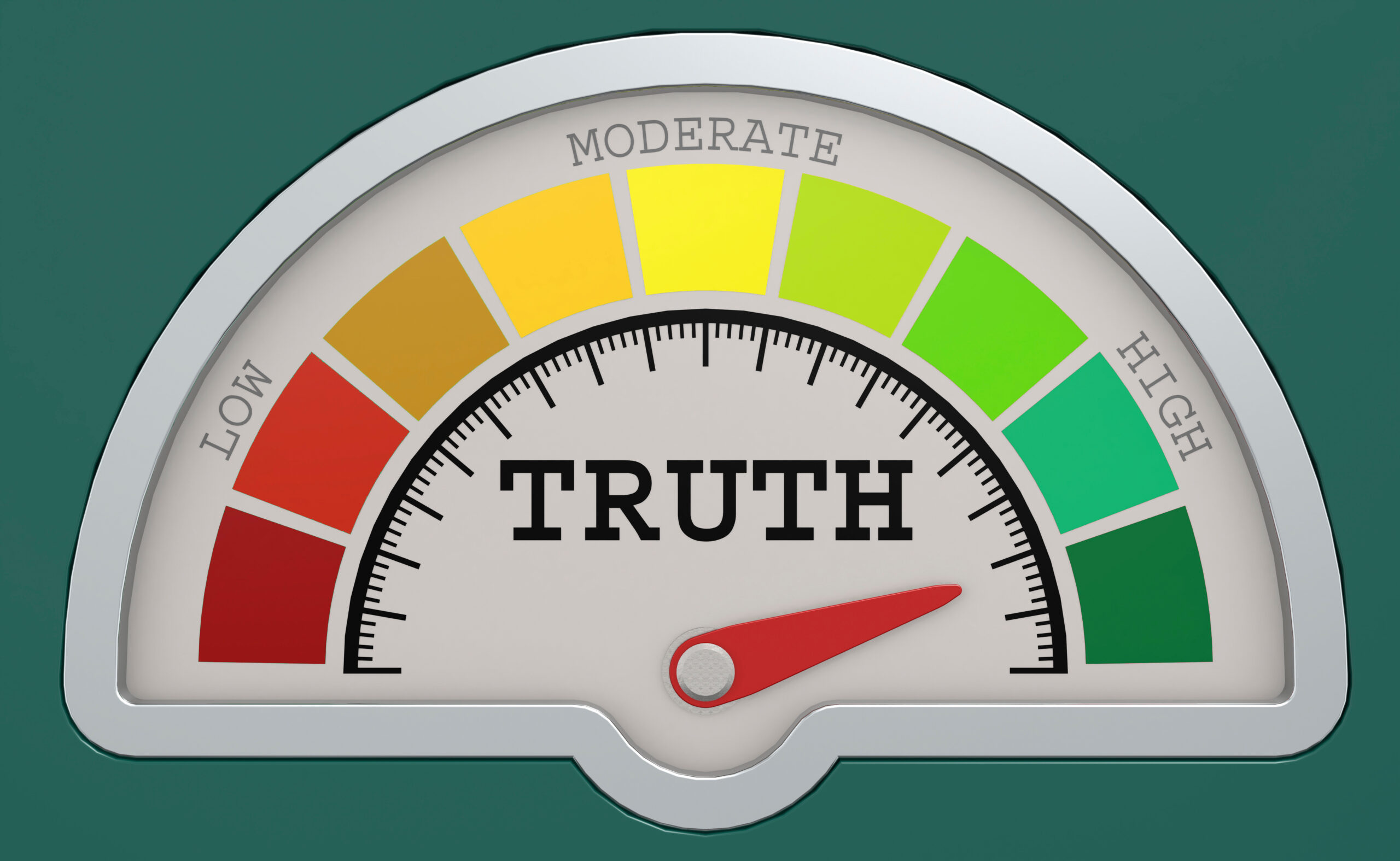
By Lizette Ramirez
January’s question of the month poll* asked NJC alumni if they can tell when someone is lying in court.
The overwhelming majority appear to think they can.
Of the 371 judges who replied to the emailed multiple-choice question, more than 90 percent said they were either “very confident” they could tell when someone is lying (10 percent), “fairly confident” (40 percent), or “somewhat confident” (41 percent). Less than 10 percent said they had no confidence.
Town Court Justice Henry C. Smith of Leicester, New York, revealed a tactic he uses to tell when someone is lying.
“When I think someone is lying, I will ask the same question in a different way and see how they answer it,” he explained. “Most of the time the questions I will ask I already have the answer in front of me (in a background history)”
Chief Judge John Haupt of the Makah Tribal Court in Neah Bay, Washington, wryly claimed to have an advantage in spotting liars–being “a retired law enforcement officer and father.”
But Judge Jonathan Woodman of the Superior Court in Palmer, Alaska, expressed skepticism about judges always knowing when someone is lying.
“Contrary to popular belief,” he wrote, “(we) are not human lie detectors.”
Court Commissioner Rebekah Zinn of Thurston County (WA) Superior Court would agree. She pointed out that people with autism can sometimes appear to be lying because they avoid eye contact, fidget and speak in a monotone. She knows this, she wrote, because she is autistic.
The poll also asked judges if they feel it’s easier to tell if someone is lying when the testimony is in person or when it’s virtual. Nearly all voted for in person.
“It is very difficult to see and interpret demeanor via iPhone or video…,” wrote Judge J. Channing Bennett of the 3rd Judicial District Court in Salem, Oregon. “Watching a video of a tiger is different than viewing a tiger at the zoo in its enclosure.”
* Each month the College emails an informal, non-scientific, one-question survey to its more than 12,000 judicial alumni in the United States and abroad. The results, summarized in the NJC’s Judicial Edge Today, are not intended to be characterized as conclusive research findings.

CHICAGO – The American Bar Association Judicial Division announced recently that TheNational Ju...

The National Judicial College is mourning the loss of former faculty member Judge Duane Harves, who passed ...

As the world manages an evolving natural environment, The National Judicial College announced today that it...

Do’s Manage your cases systematically Devise a system that works for you and your organizational...

After 22 years of teaching judges, Tennessee Senior Judge Don Ash will retire as a regular faculty member a...